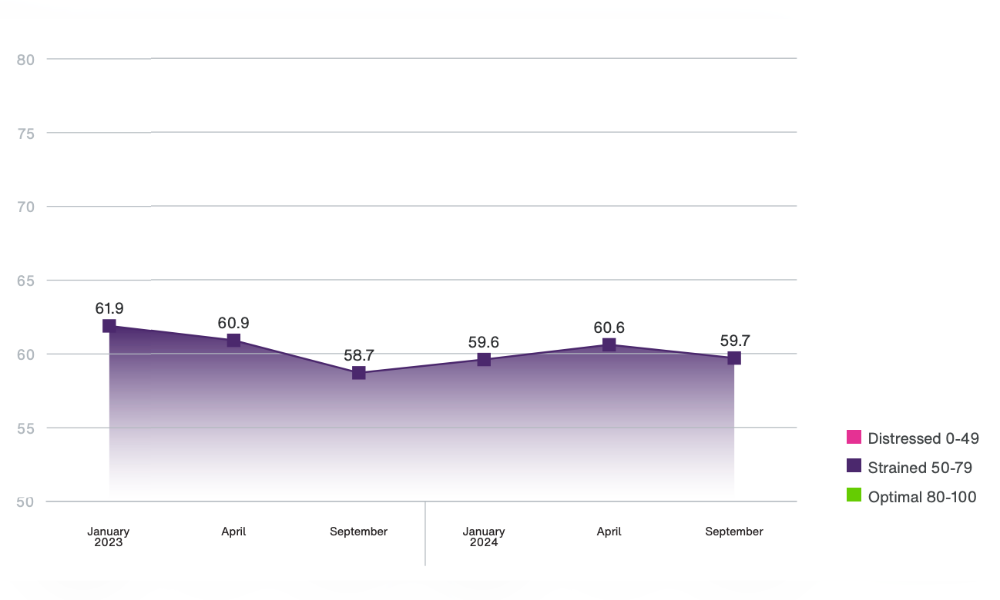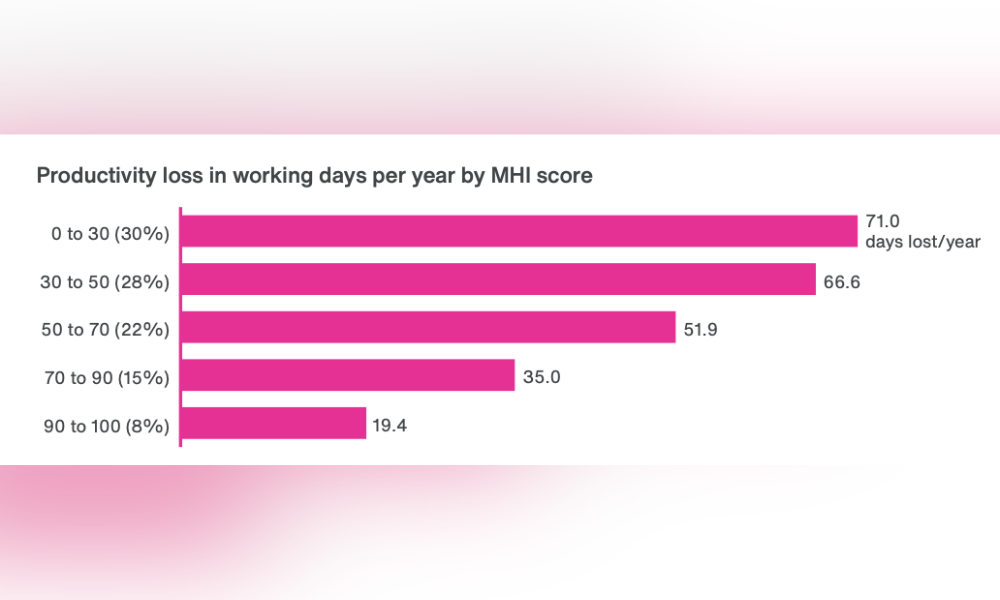
Employers risk losing up to 71 working days in productivity due to poor mental health

The mental health of New Zealand employees declined in September 2024, with organisations at risk of losing up to 71 working days annually due to poor mental health.
This is according to the latest TELUS Mental Health Index, which revealed a decline in mental health scores among New Zealanders after two years of improvement.
Mental health scores declined to 59.7, down from the 60.6 in April 2024, with 40% of employees at high mental health risk.

Source: TELUS Mental Health Index - New Zealand
"The mental health of New Zealand's workers has declined since April 2024. Toward this end, we see the most significant areas worsening are isolation, anxiety and work productivity," said Julie Cressey, General Manager New Zealand, TELUS Health, in a statement.
"There are several factors that impact mental health and wellbeing, including physical health, social support, personal and situational factors, and financial wellbeing."
According to the report, employees with lower mental health scores experience greater productivity loss, which is reported as the number of workdays lost annually.
In New Zealand, businesses risk losing up to 71 working days of productivity per year due to poor mental health.

Source: TELUS Mental Health Index - New Zealand
"With mental health scores at an all-time low nationwide, it's essential to understand the significant impact on productivity. A workforce that isn't thriving can't drive a business to its full potential," said Paula Allen, Global Leader, Research & Client Insights, TELUS Health, in a statement.
Allen said organisations can turn the situation around by focusing on meaningful support to employees.
"We know that mental health and wellbeing can improve or decline over time, and that the support available makes a big difference in improvement," she said.
In fact, the report found that workers who rated their employer support for physical wellbeing as excellent only lose 33.2 working days per year in productivity.
This is much lower than the 57.6 in working days lost due to poor employer support on physical health.
This is also the case for employers' mental wellbeing support. Those who rated it as excellent only lost 27.7 working days per year in productivity, much lower than the 58.9 working days lost for those who rated it as poor.
"Comprehensive wellbeing programmes present a vital opportunity for employers to offer meaningful support, equipping employees with resources that can improve mental health, boost productivity and drive stronger organisational performance," Cressey said.